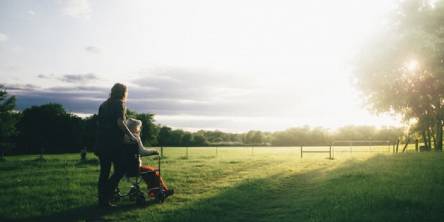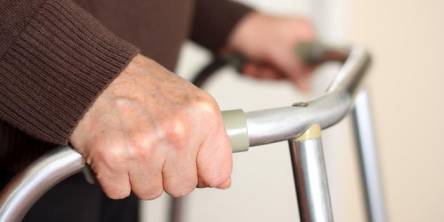Could Sheltered Accommodation be the Right Choice in Preparing for Long-term Elderly Care?
What does Sheltered Accommodation offer
Sheltered accommodation is another in the list of long-term elderly care options as opposed to care homes, care in the community or living with family. Often it is called warden-controlled accommodation, as this is one of the benefits, there is a warden on site usually 24 hours, they often live on site. In many sheltered accommodation facilities, medical care is also provided, many places have a nurse who has access to a defibrillator and other necessary equipment, in case of an emergency. Maintenance of the properties is also carried out on a regular basis, and there is always someone on hand to change a light bulb, help with laundry, rubbish removal, and odd jobs.
You have your own front door key and each unit is self-contained, some single ones, however, are just a studio flat with the bed screened off from the living area, perhaps not suitable for a person who has lived in a house with plenty of space. You have to view them to see whether you could consider living there. Most units have a bathroom, kitchen, bedroom, living area, and a small hall with storage space. They are perfectly adequate if you can rationalize some of the possessions that you do no longer need. Being more compact, they are easy to clean, but you could pay a cleaner a nominal charge if you so wished. Some retirement villages even have cleaning services you can include as part of your weekly rent.
Sheltered Accommodation for Elderly Living
A mobile hairdresser usually makes weekly visits, or if you're mobile enough you can visit a local one, do your own shopping and act as though you were still living in a private house, however, you have help on hand if needed. Often a minibus will take residents to a local supermarket weekly to do their shopping if they cannot drive, walk far or use the local bus.
There is a communal lounge where you can sit in the evenings, usually with a television, but if you prefer you can stay in the privacy of your own flat. A notice-board will be on display featuring the many activities happening in the lounge e.g. bingo, games, coffee mornings or trips out and about. If you are a social animal this is an ideal way to spend your later years, as you will always have someone to talk to. Another advantage is the fact that as you deteriorate you can have carers come in to do various chores, meals on wheels, your GP would do home visits and if you have been there for a long time, the warden and staff would do all in their power to allow you to stay there, rather than move to a rest home.
Retiring and Living Independently
Over 55's are now moving into sheltered accommodation as they see it as a good way to live, whilst still maintaining some independence. In a sense making a move into a sheltered accommodation environment, whilst you are still able-bodied, is as much about making that transition to a pleasant and supportive place and preparing for retirement years before they truly descend upon you. For this reason, many sheltered accommodation facilities are now called retirement villages, retirement homes, retirement communities or independent living, to connote this sense of a pleasant social, communal surrounding.
Applying for a Sheltered Accommodation Place
To apply for this accommodation, you would have to complete a form a time before you wished to enter a flat, as there is usually a waiting list, but not a huge one. There are also usually a couple of rooms set aside for visiting relatives to stay in if they wish, this is very handy if they live a distance from you.
You do need to give it some thought and visit a few in the vicinity you wish to live before making a decision. They can be the ideal choice for some people, and I know many who believe moving into sheltered accommodation was the best thing they ever did; however, a sheltered living environment will not suit everybody. Couples can also have double flats, which are, of course, a lot larger. At one time a single person could take a double flat, this practice was discontinued for a while, however, you may find a housing association which will allow this, enabling you to have a lot more space.
All-in-all sheltered accommodation facilities seem quite happy, friendly places and it takes the worry out of many aspects of coping as you age. For this reason, considering sheltered housing can certainly be the right decision in preparing for your long-term care as you approach those ‘twilight’ years.
Similar Articles
For individuals requiring extensive support and assistance with daily activities, in-home care is an invaluable resource. This level of care provides continuous support and supervision, ensuring that individuals receive around-the-clock aid in the comfort and familiarity of their own homes.
When choosing an assisted living community, it is essential to consider the type and quality of food offered. This is generally one of the first things people look at when they tour different communities because it can affect the quality of life for residents immensely.
Summers mean several things for several people - numerous enjoyable outdoor activities such as picnics, swimming, barbecuing, and going to the beach, among others. However, the rising temperatures can pose major health risks, particularly for the elderly.
Old age comes with its own set of problems and one of the most serious issues the elderly have to face is heart problems. While heart issues can affect anyone, the risk of cardiovascular disease goes up as you get older. In fact, more than 67% of people between the ages of 60-79 years suffer from some form of heart disease.
Dementia is a frightening condition with the primary symptom being declining memory loss and the overall inability to perform simple problem-solving tasks. Additionally, it impacts a person’s ability to think critically, whilst affecting the language patterns. It is a common occurrence among the elderly in society.
This article will show you the six important steps you should follow when hiring an in-home care agency. Learn here more about how to find the right in-home care agency near your area.
A fundamental part of giving care is being a good communicator with the person getting care. Care is given with respect for the dignity of the person receiving care. The carer remains in contact with the primary health care provider, often a doctor or nurse, and helps the person receiving care make decisions about their health and matters affecting their daily life.
When you take a look around, you realize that the country is aging and getting a few more gray hairs. More baby boomers are entering early retirement and modern medicine is helping us to live longer into our golden years.
Mobility aids are the best medical products used by the disabled and elderly to walk easily, which are not capable to move or walk freely on their own. Today, the market is flooded with many kinds of mobility aids.









